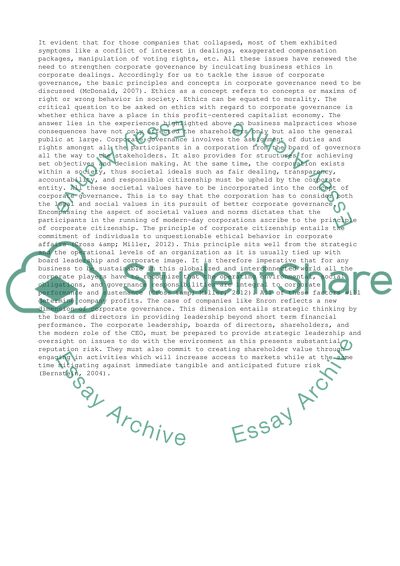Cite this document
(Corporate Ethics in the Post Enron Era from the Role of a Policy Coursework, n.d.)
Corporate Ethics in the Post Enron Era from the Role of a Policy Coursework. Retrieved from https://studentshare.org/management/1443374-corporate-ethics-in-the-post-enron-era-from-the
Corporate Ethics in the Post Enron Era from the Role of a Policy Coursework. Retrieved from https://studentshare.org/management/1443374-corporate-ethics-in-the-post-enron-era-from-the
(Corporate Ethics in the Post Enron Era from the Role of a Policy Coursework)
Corporate Ethics in the Post Enron Era from the Role of a Policy Coursework. https://studentshare.org/management/1443374-corporate-ethics-in-the-post-enron-era-from-the.
Corporate Ethics in the Post Enron Era from the Role of a Policy Coursework. https://studentshare.org/management/1443374-corporate-ethics-in-the-post-enron-era-from-the.
“Corporate Ethics in the Post Enron Era from the Role of a Policy Coursework”, n.d. https://studentshare.org/management/1443374-corporate-ethics-in-the-post-enron-era-from-the.


